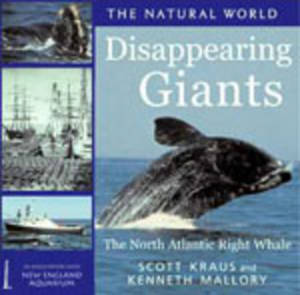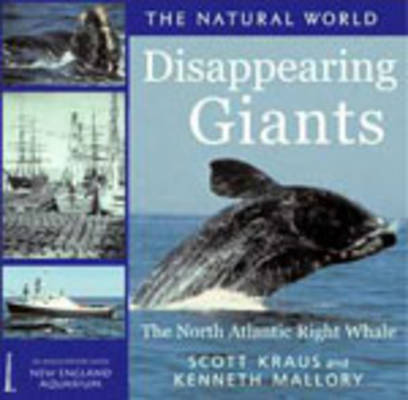
- Retrait gratuit dans votre magasin Club
- 7.000.000 titres dans notre catalogue
- Payer en toute sécurité
- Toujours un magasin près de chez vous
- Retrait gratuit dans votre magasin Club
- 7.000.0000 titres dans notre catalogue
- Payer en toute sécurité
- Toujours un magasin près de chez vous
Description
The North Atlantic right whale (Eubalaena glacialis) is the most endangered large whale in the oceans today. Fewer than 350 are left in their breeding and feeding grounds, which extend from Nova Scotia to the Gulf of Mexico. Survivors of hundreds of years of commercial exploitation, the right whales we see in the ocean today are barometers for the plight of whales in the 21st century. For over 900 years, beginning about a.d. 1000, whalers from Europe and the Americas hunted North Atlantic right whales almost out of existence. By 1935, when they were at last given international protection as an endangered species, some scientists suspected that there were fewer than 100 right whales left in the North Atlantic Ocean. Most thought the right whale was doomed to extinction. Disappearing Giants: The North Atlantic Right Whale describes and illustrates an ongoing story of science and rediscovery, of survival and protection, and of research, without which we cannot hope to protect the right whale's habitat along 1,400 miles of the east coast of North America, from Nova Scotia to Florida. Disappearing Giants: The North Atlantic Right Whale also describes in great detail the history and current status of the species, from the reason for its name, to the way each individual can be recognized, the species' feeding and breeding habits, migration, and life in the wilderness of the Atlantic Ocean. Scott Kraus is the director of research and Kenneth Mallory is the editor-in-chief of the publishing program at the New England Aquarium. Between them they have published books and numerous scientific papers as well as children's books, one of which they wrote together, Search for the Right Whale, published in 1992.
Spécifications
Parties prenantes
- Auteur(s) :
- Editeur:
Contenu
- Nombre de pages :
- 48
- Langue:
- Anglais
- Collection :
Caractéristiques
- EAN:
- 9781593730048
- Date de parution :
- 07-10-04
- Format:
- Livre relié
- Format numérique:
- Genaaid
- Dimensions :
- 156 mm x 169 mm
- Poids :
- 213 g

Les avis
Nous publions uniquement les avis qui respectent les conditions requises. Consultez nos conditions pour les avis.






